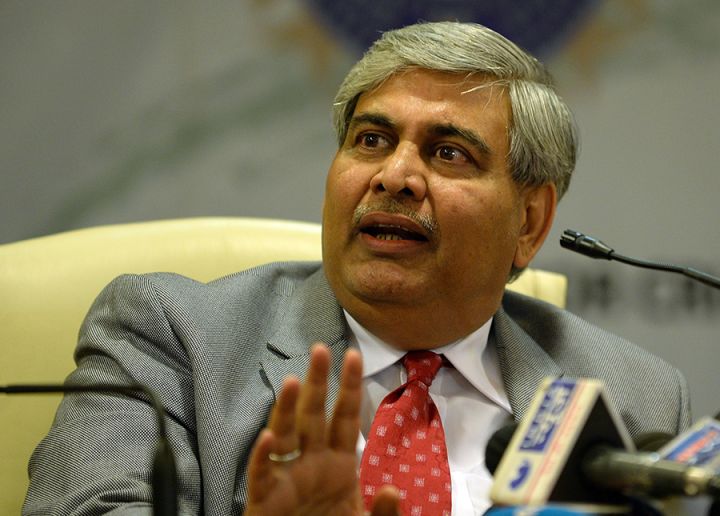Manohar charts a new path for ICC
ICC chairman has asked cricket's administrators to be ready to embrace change as the governing body starts to "reverse" the vast changes implemented by the Big Three

Shashank Manohar, the ICC chairman, has asked cricket's administrators to be ready to embrace change as the governing body starts to "reverse" the vast changes implemented by the Big Three in 2014.
In an unusual move, the ICC's new website - relaunched today - carried a column by its chairman ostensibly looking ahead to 2017, but published on the eve of a key round of quarterly ICC meetings in Dubai from Thursday. The most significant items on the agenda will be, in Manohar's words, "a complete review of the 2014 resolutions and constitutional changes."
That will include potentially replacing the revenue distribution model devised in 2014 by the BCCI, ECB and Cricket Australia, which pushed a considerable percentage of ICC revenue to those three boards, as well as greater governing power.
Manohar, who took over from N Srinivasan as ICC chairman in November 2015, has repeatedly objected to such an unequal distribution and power structure, and has made it his priority as chairman to revoke previous resolutions. "I don't agree with the three major countries bullying the ICC," Manohar had said.
He has since remained true to those intentions. In his column Manohar said he was optimistic about the board adopting the new changes proposed by a working group constituted last year to review the Big Three's reforms. "As Chairman of the ICC, I feel optimistic for our sport for a number of reasons away from the field of play," Manohar wrote. "Sport governance is under the spotlight more than ever before and it is no secret that in our recent past the ICC has taken decisions that were in retrospect not always in the best interests of the game as a whole. I believe 2017 is the year when we start to reverse that and provide a genuine opportunity for our sport to grow."
Outlining a broader vision, Manohar wrote that he wanted all ICC members "from the largest nation to the smallest" to benefit from decisions taken by the board. "The ICC constitution, our governance and financial distributions will all be discussed as we navigate our way towards a better sport that enables all of our members to grow and flourish and for the ICC to grow the game in new markets."
Also on the agenda will be debate about the future of Test and one-day cricket, facing a rising challenge from the growing success of domestic Twenty20 leagues around the world. Cricket's administrators have been trying to find an appropriate model that provides context to international bilateral cricket as well as keep their finances healthy.
Manohar wrote that it was important to "protect and promote the three vibrant formats" of the game, providing them with context and meaning while at the same time creating "an event pathway that is open to every member."
But he also highlighted the challenge that his organisation in particular faces, one that has been repeatedly highlighted by ICC heads and officials over the years. The ICC, Manohar wrote, could only play the role of facilitator because it did not "own" international cricket. "[T]he rights to bilateral international cricket are not owned by the ICC. These rights vest in the respective boards. Thus it is not for us to impose a structure on the members. We need to work in partnership with them, facilitating discussion around the future structure and providing the resource to work through and test ideas.
"This takes time and we must be comfortable with that. Making ill-thought out and hasty change, or change for change sake, will not have the transformative effect we're all focused on. I believe there is a genuine will from across our membership to deliver a structure for each of the three formats of the game and I am confident that collectively we will achieve that in 2017."
In concluding, Manohar said, change was imperative. "Change is not always easy to champion nor is it easy to digest, but we must think of the global game when taking decisions and only then will history judge us kindly."
Nagraj Gollapudi is a senior assistant editor at ESPNcricinfo
Read in App
Elevate your reading experience on ESPNcricinfo App.